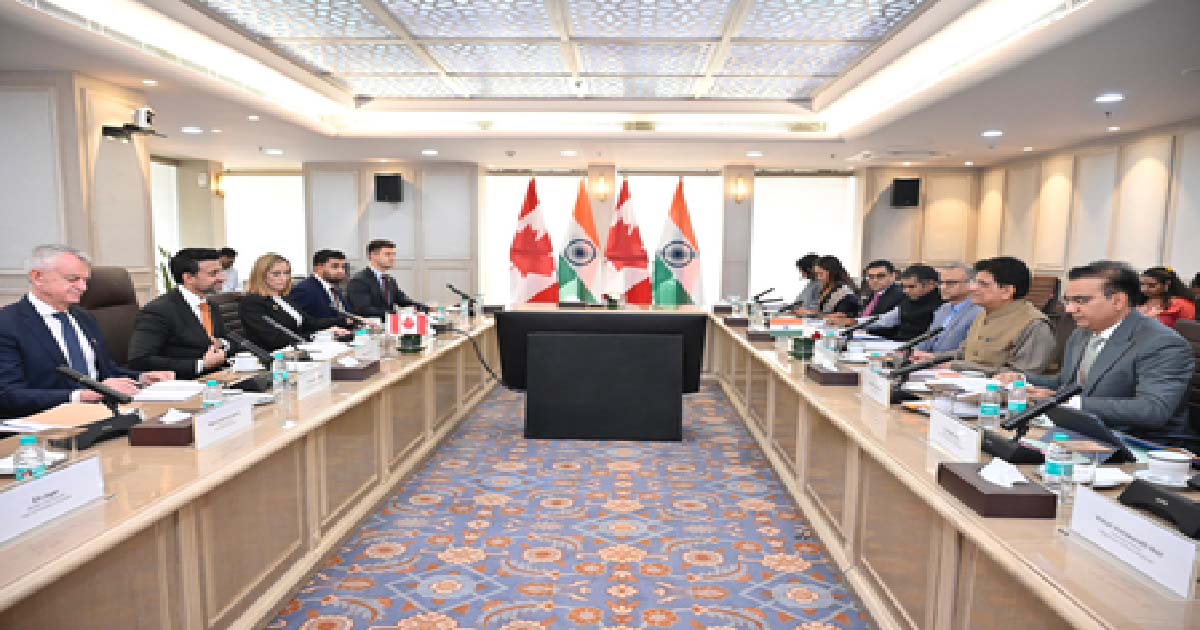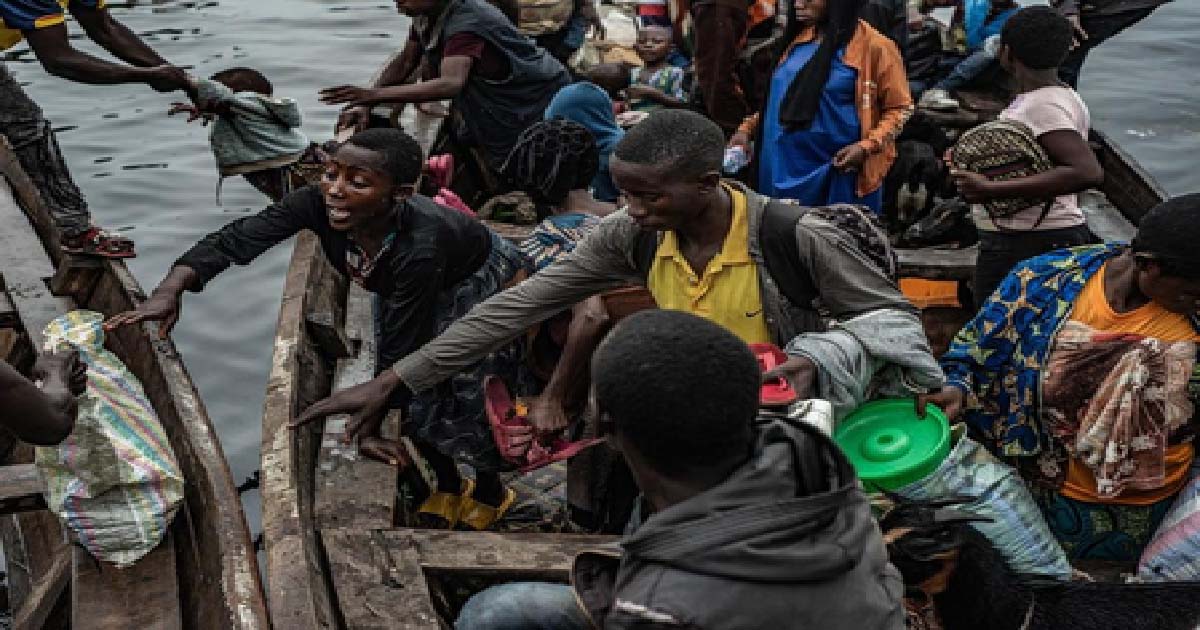International News
UN calls for end to education gap

The UN’s Transforming Education Summit has offered an opportunity to galvanise global action to recover learning losses and rethink education systems.
With Covid-19 exposing the fault lines of education systems globally, more than 130 countries have committed to rebooting their education systems and accelerating action to end the learning crisis, said the organisers of the summit, which UN Secretary-General Antonio Guterres convened, reports Xinhua news agency.
Education is in a deep crisis. Instead of being the great enabler, education is fast becoming the great divider, said Guterres in his speech to the opening of the leaders’ meeting day of the summit.
The summit was held on the sidelines of this year’s UN General Assembly high-level week.
Some 70 per cent of 10-year-olds in poor countries cannot read a basic text. Even in developed countries, education systems often entrench rather than reduce inequality, reproducing it across generations. The rich have access to the best resources, schools and universities, leading to the best jobs. At the same time, the poor, especially girls, face huge obstacles to getting the qualifications that could change their lives, said Guterres.
Displaced people and students with disabilities face the highest obstacles of all. The Covid-19 pandemic has had a devastating impact on learning worldwide. But the education crisis began long before, and runs much deeper, he said.
Education systems are failing students and societies. Too often, curricula are outdated and narrow. Education systems take little account of life-long learning. Teachers are under-trained, undervalued and underpaid. The digital divide penalizes poor students. The education financing gap yawns wider than ever, said Guterres.
“We will not end this crisis by simply doing more of the same, faster or better. Now is the time to transform education systems,” he said.
The UN chief called for action in five areas to transform education.
First, more work is needed to protect the right to quality education for everyone, especially girls, everywhere.
He said today’s teachers need to be facilitators in the classroom, promoting learning rather than merely transmitting answers.
“We also need to tackle the global shortage of teachers, and look at increasing their quality by raising their status and ensuring they have decent working conditions and continuous training and learning opportunities and receive adequate salaries,” he said.
Schools must also become safe, healthy spaces with no place for violence, stigma or intimidation. Education systems should promote the physical and mental health of all students, including their sexual and reproductive health, he said, adding that the digital revolution must benefit all learners.
He said that none of the above will be possible without a surge in education financing and global solidarity.
Guterres and Gordon Brown, the UN special envoy for global education, launched the International Facility on Financing for Education during the summit, a first-of-its-kind tool that aims to mobilize $10 billion to help 700 million children in lower-middle-income countries to access quality education.
The tool combines direct grants and guarantees that can multiply donor resources.
It uses donor guarantees to provide a new form of quasi-equity to multilateral development banks, which can raise additional financing in capital markets and provide funding to countries for education.
Setting out a vision statement at the summit, he called on countries to revisit the purposes of education, proposing that curricula must respond to broad purposes, including learning to learn, learning to live together, learning to do and learning to be.
Business
India, Canada discuss ways to boost bilateral trade, promote investments

New Delhi, Nov 13: Commerce and Industry Minister Piyush Goyal and Maninder Sidhu, Canada’s Minister of International Trade, discussed ways to further boost bilateral trade and promote investments, it was announced on Thursday.
Sidhu is in India to find opportunities to advance trade and investment linkages between the two nations.
“It was a pleasure to co-chair the 7th India-Canada Ministerial Dialogue on Trade and Investment as part of the New Roadmap 2025 along with @MSidhuLiberal, Canada’s Minister of International Trade,” Goyal posted on the X social media platform.
The minister further stated that they discussed “avenues to strengthen bilateral trade, promote investments and deepen cooperation between our countries”.
During his India visit, Sidhu is set to promote Canada’s commitment to supporting and growing the well-established commercial ties shared by Canada and India, including artificial intelligence, clean technology and digital industries, and explore new opportunities for partnerships that benefit workers and businesses in both countries.
“This visit to India will reinforce Canada’s commitment to diversifying our trade relationships and attracting new investment,” an official statement quoting Sidhu said. “As one of the fastest-growing major economies, India offers significant opportunities for Canadian businesses and workers. Our commercial ties continue to expand — bilateral trade surpassed $30 billion in 2024 — and there is even greater potential ahead,” the statement added.
India is a key partner as Canada strengthens its economic links in the Indo-Pacific region under a comprehensive strategy for the region. In 2024, India was Canada’s seventh-largest goods and services trading partner, with two-way trade valued at $30.9 billion.
Meanwhile, External Affairs Minister (EAM) S. Jaishankar and his Canadian counterpart, Anita Anand, held discussions on strengthening cooperation across key sectors, including trade, energy and security. Both leaders met on the sidelines of the G7 Foreign Ministers’ Meeting in Niagara.
EAM Jaishankar also praised the progress made under the New Roadmap 2025, aimed at enhancing bilateral ties between India and Canada and expressed hope for rebuilding a stronger partnership.
Crime
Banned drugs worth Rs 45 crore smuggled from Myanmar seized in Mizoram; two held

Aizawl, Nov 13: The Assam Rifles, in a joint operation with Mizoram Police, recovered highly addictive Methamphetamine tablets valued at Rs 45 crore from Saitual district and arrested two drug peddlers, officials said on Thursday.
A defence spokesman said that based on specific intelligence about the movement of drugs on the Ngopa-Saitual road in northern Mizoram’s Saitual district, a joint operation was launched on the intervening night of Wednesday and Thursday.
The team of Assam Rifles established a vehicle check post, which intercepted the suspected vehicle carrying drugs at Ngopa.
During the search operation, 15 kg of banned Methamphetamine tablets worth Rs 45 crore were recovered from two persons — Rabizul Haq and Naasiruddin, both residents of Barpeta in western Assam.
Recovered contraband, smuggled from Myanmar, along with apprehended individuals and their vehicle, were handed over to the Saitual district Police for detailed investigation and further legal proceedings.
As part of its continuous efforts to curb the spread of the drug menace in Mizoram, the Assam Rifles conducted yet another successful anti-narcotics operation, the spokesman said.
Meanwhile, the Assam Rifles, in a joint operation with Assam Police, recovered heroin valued at Rs 4.65 crore from near Jhujang Pahar in Cachar district of southern Assam on November 11.
The November 11 drug seizure took place within two days in the same Cachar district.
The Assam Rifles, in a similar joint operation with Assam Police, recovered methamphetamine tablets worth Rs 6 crore on November 9. The banned methamphetamine tablets, also known as Yaba or party tablets, contain a mixture of methamphetamine and caffeine and are commonly referred to as the ‘crazy drug’.
The highly addictive drugs are very popular among drug addicts in India, Bangladesh and the neighbouring countries.
Notably, Myanmar shares a 1,643-km-long unfenced border with four Northeastern states — Mizoram, Arunachal Pradesh, Manipur and Nagaland — which serve as a key transit point for drugs, particularly heroin and methamphetamine tablets.
At least six of the 10 districts of Mizoram — Champhai, Siaha, Lawngtlai, Hnahthial, Saitual and Serchhip — share a 510-km border with Myanmar. Mizoram, Manipur, Tripura and southern Assam have turned into major corridors for drug smuggling from Myanmar, with the illegal consignments being ferried to other parts of the country and abroad.
International News
Nearly 25 million people facing acute food insecurity in Congo: UN

United Nations, Nov 13: Nearly 25 million people, over 20 per cent of the population, are facing high levels of acute food insecurity in the Democratic Republic of the Congo (DRC), a UN spokesperson said.
The DRC remains one of the countries most affected by food insecurity, with the situation particularly severe in the east, said Stephane Dujarric, spokesperson for the UN secretary-general, at a daily briefing on Wednesday.
According to the latest Integrated Food Security Phase Classification analysis, the number is projected to rise to nearly 27 million people in the first half of 2026, he said.
Dujarric said the UN Office for the Coordination of Humanitarian Affairs (OCHA) remains deeply concerned about continued attacks against civilians in Beni and Lubero territories in North Kivu and also in Ituri province, with more than 1,000 people reportedly killed in the two provinces since the beginning of this year.
The impact on health services has been devastating, with at least six facilities attacked since the beginning of 2025 and a total of at least 28 health sites affected by armed attacks since 2024, said the spokesperson.
He said OCHA reiterated its call on all parties to respect international humanitarian law and ensure the protection of civilians and civilian infrastructure.
Since January, the security situation in eastern DRC has worsened sharply amid renewed fighting involving the March 23 Movement rebel group, which seized several key towns, including Goma and Bukavu, Xinhua news agency reported.
Humanitarian agencies say the escalating violence has displaced hundreds of thousands of civilians, deepening an already dire crisis.
Earlier on October 14, the government of the DRC and the March 23 Movement (M23) rebel group had signed an agreement in Doha to establish a ceasefire monitoring and verification mechanism, under the facilitation of Qatar.
-

 Crime3 years ago
Crime3 years agoClass 10 student jumps to death in Jaipur
-

 Maharashtra1 year ago
Maharashtra1 year agoMumbai Local Train Update: Central Railway’s New Timetable Comes Into Effect; Check Full List Of Revised Timings & Stations
-

 Maharashtra1 year ago
Maharashtra1 year agoMumbai To Go Toll-Free Tonight! Maharashtra Govt Announces Complete Toll Waiver For Light Motor Vehicles At All 5 Entry Points Of City
-

 Maharashtra1 year ago
Maharashtra1 year agoFalse photo of Imtiaz Jaleel’s rally, exposing the fooling conspiracy
-

 National News1 year ago
National News1 year agoMinistry of Railways rolls out Special Drive 4.0 with focus on digitisation, cleanliness, inclusiveness and grievance redressal
-

 Maharashtra12 months ago
Maharashtra12 months agoMaharashtra Elections 2024: Mumbai Metro & BEST Services Extended Till Midnight On Voting Day
-

 National News1 year ago
National News1 year agoJ&K: 4 Jawans Killed, 28 Injured After Bus Carrying BSF Personnel For Poll Duty Falls Into Gorge In Budgam; Terrifying Visuals Surface
-

 Crime1 year ago
Crime1 year agoBaba Siddique Murder: Mumbai Police Unable To Get Lawrence Bishnoi Custody Due To Home Ministry Order, Says Report














